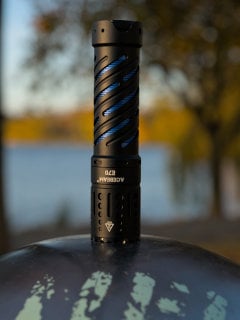

That’s why I didn’t mention the sample rate. You aren’t going to get really anything back increasing to 96 khz. But I promise you increasing the bit depth leads to a noticeable change in the perception of the recording. You’re not going to get anything from modern pop since it’s compressed to hell and back, but find a good recording of an album you’ve listened to a lot and find some decent, wired headphones and try an A/B of a 16 and 24 bit mix. You’ll see what I mean.









Thank you, that was an interesting breakdown. I really appreciate his methodology. I’m going to deep dive into anything he has posted. Though he doesn’t come to the same conclusion I do, the takeaway is:
Yes, there is noticeable sound loss when converting a 24 bit sample to 16 bit.
You can really screw with a 24 bit sample and still have a listenable file, presumably because of the bit depth.
Recording and mastering in 24 bit benefits classical music reproduction, and I would argue, any acoustic music reproduction. So, anything with a vocal, drum kit, acoustic guitar, etc.
Since the video is about dither specifically, he does conclude that mastering to 16 bit gives the technician a sturdier product when played back on the myriad of modern equipment we have. It’s arguable, sure, but since this an audiophile sub…
Really though, thanks for posting the video. Deep dive in 3, 2…